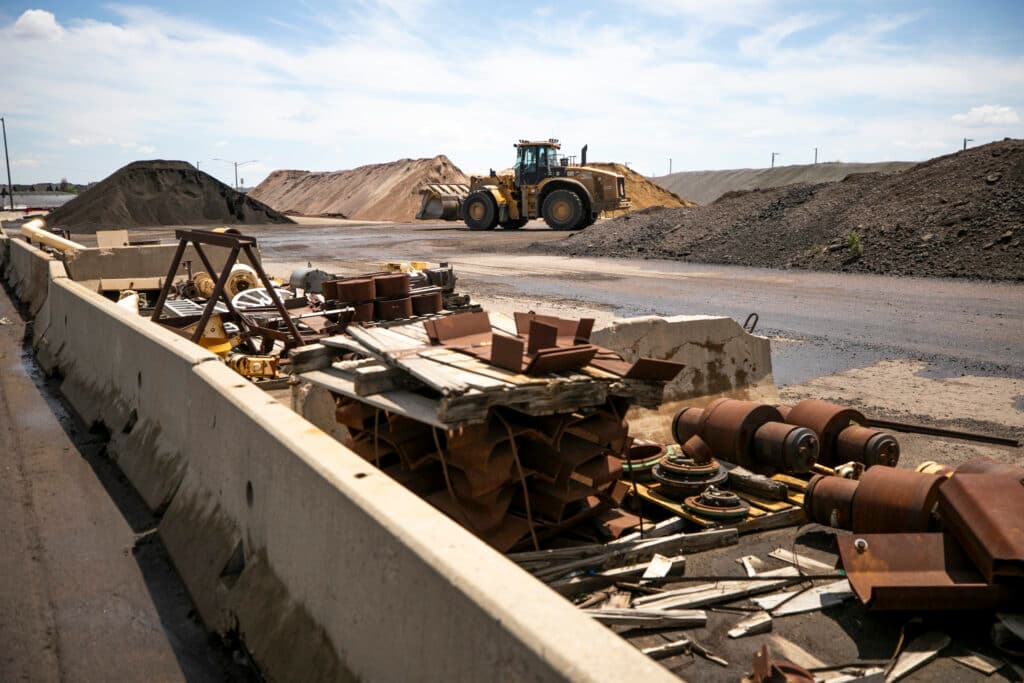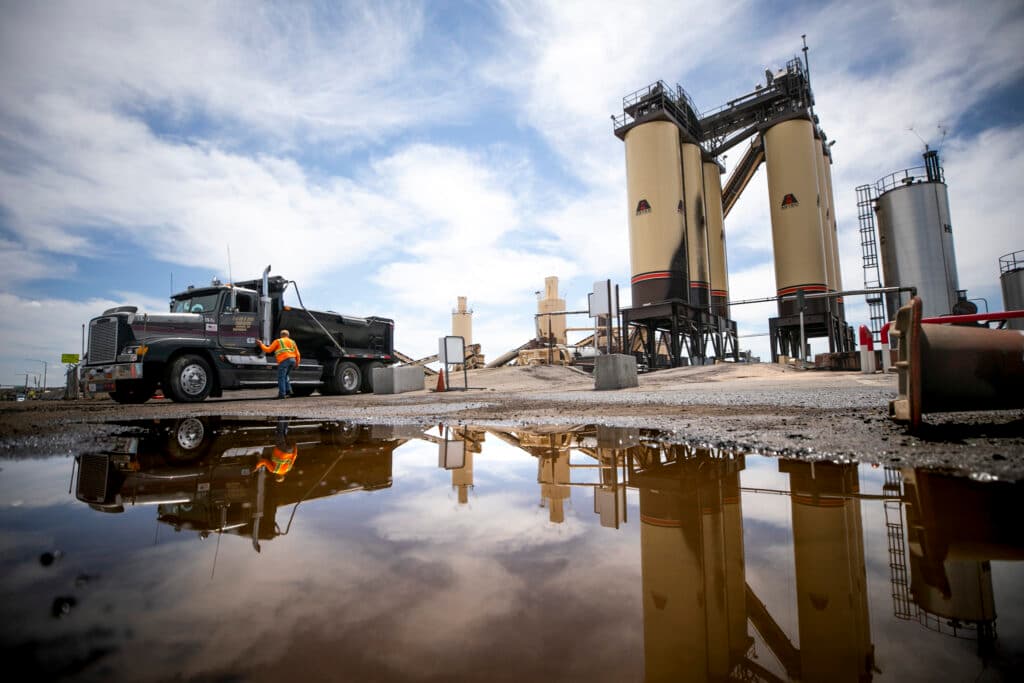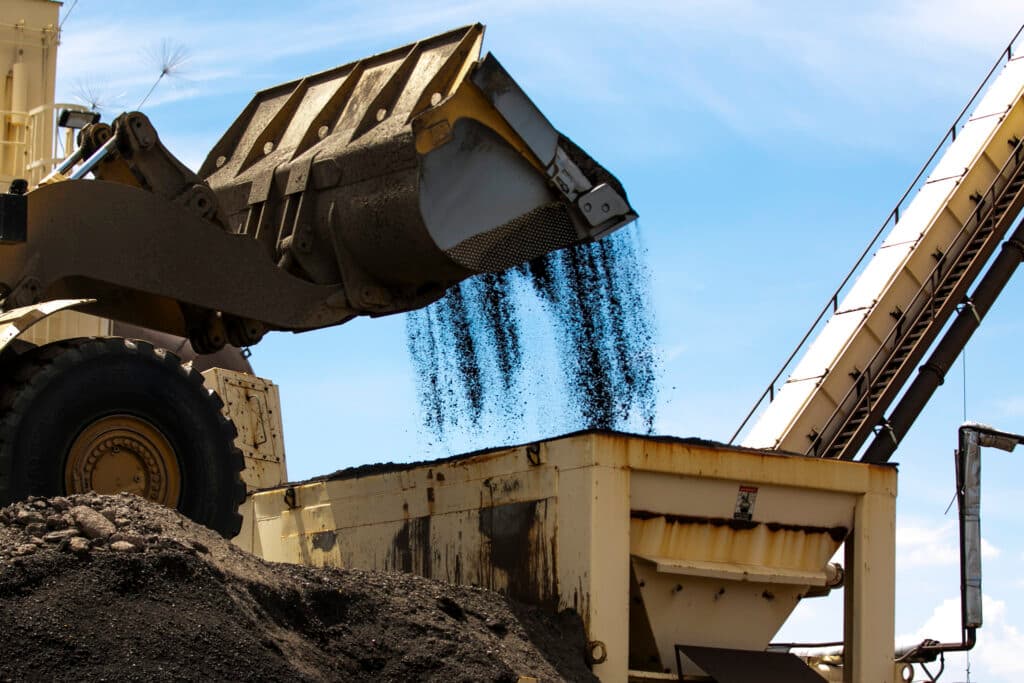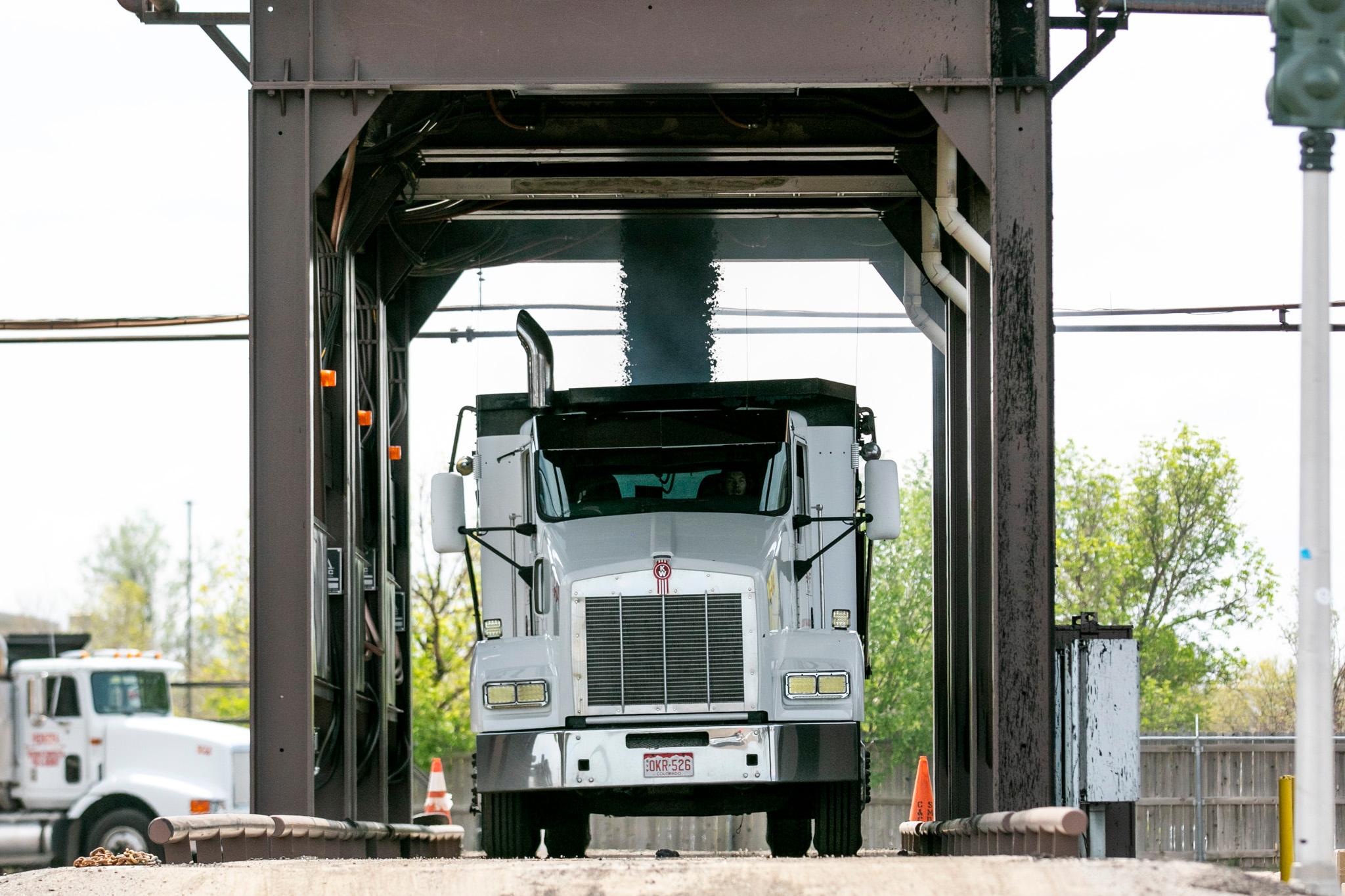The city of Denver will ship in millions of dollars of liquid asphalt from out of state, and out of country, after elected officials shot down a contract with a local oil refinery.
The city was set to spend $25 million over five years to buy asphalt product from Suncor Energy, which operates the sprawling oil refinery in Commerce City. But council members hit the brakes this week, saying that it polluted the area and wasn’t the kind of company that the city should do business with.
“We have made some pretty clear statements about who we will do business with and who we won't do business with. So, imagine my surprise when I saw a contract for $25 million with Suncor coming in, given the harm that it has caused our communities,” said Councilmember Amanda Sawyer.
Councilmember Shontel Lewis agreed, saying that Suncor was responsible for many “of the injustices in our history and … remains to be a major problem for North Denver.”
Suncor officials did not respond to requests for comment.
'It’s a tough one, because oil exploration is not great anywhere'
The council voted 12-0 to reject the Suncor contract. The city instead is likely to go with the next lowest bidder, Husky Marketing and Supply Co., a subsidiary of the Canadian giant Cenovus Energy.
The city brings liquid asphalt into its local pavement plant and uses it to build and maintain roads.

Suncor describes its Commerce City refinery as the “primary producer of paving-grade asphalt for roads” in the area, sourcing its oil from the Denver-Julesburg Basin, which is in Colorado and Wyoming.
With the plans for a new contract, Denver could instead ship in oil from much farther away. Cenovus said that it would produce the product at its refineries in Superior, Wisc. or in Lloydminster, Canada, transporting it by rail to a Hudson, Colo. terminal.
The Cenovus refinery in Lloydminster processes some oil from the Alberta oil sands. National Geographic has described oil sands extraction as “the world’s most destructive oil operation” due to its high energy usage and local impacts.
However, Cenovus said in a statement that its asphalt is sourced from conventional oil sources, not the oil sands. (Suncor also is based in Canada and runs an oil sand operation.)

The city would pay $60,000 more per year for the Cenovus asphalt. The Husky product is only $5 more per ton, but the city uses thousands of tons of the material. Council members said it was a worthwhile change.
“It’s a tough one, because oil exploration is not great anywhere, but Suncor in particular has had a long history of really terrible pollution of our northern neighborhoods,” Sawyer said in an interview.
Suncor has a reputation as a polluter
Suncor’s plant has been criticized by some advocates as “one of the largest sources of air pollution in the Denver-metro area."
In 2016, a plume of yellow smoke came out of one of its smokestacks. It was visible throughout the metro area, and some nearby residents received reverse-911 calls telling them to shelter in place — an example of the fear and unease that many residents have reported over the years.

“Time and time again, we're told that there's nothing we can do about Suncor, because it is not in the city of Denver,” Councilmember Chris Hinds said at the meeting. “I feel frustrated that Suncor is our neighbor, and there's not much we can do about it. We can pay $60,000 and wait another two to three weeks, and I believe we should.”
The city previously got its asphalt from a different producer, Jebro Inc. of Iowa. The city declined to release documentation from the competing bids to Denverite, saying it couldn’t do so until the process was complete.
It’s not the first time the council has rejected a contract on moral grounds. As Sawyer pointed out, the city previously shut down contracts with private operators of halfway houses.











